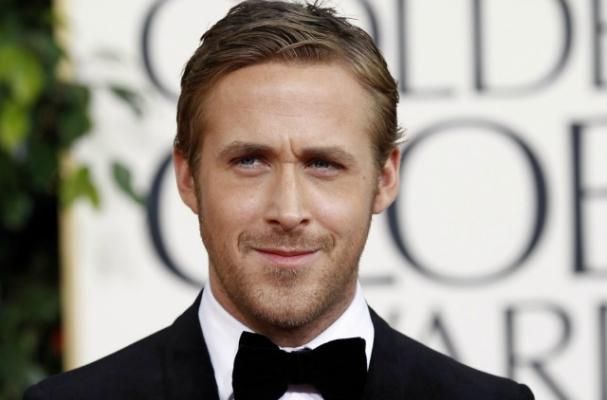
Ever since Quentin Tarantino burst onto the movie scene with *Reservoir Dogs* in 1992, the term “Tarantinoesque” has firmly entrenched itself in the pop culture lexicon. This label, used both as a compliment and occasionally a pejorative, perfectly encapsulates an ego-driven mode of filmmaking, characterized by hyper-stylized violence, tough yet melodious dialogue, disparate storylines that intricately weave together, and, of course, those iconic crash zooms. Tarantino has masterfully paid homage to and reimagined various genres, from martial arts in *Kill Bill* to crime in *Pulp Fiction*, road action in *Death Proof*, war in *Inglourious Basterds*, and westerns like *Django Unchained* and *The Hateful Eight*.
His films have cultivated a devoted fanbase, garnered critical clout, and achieved consistent box office success, establishing him as a truly distinctive filmmaker in the industry. Tarantino stands out as a trailblazer in directing, scriptwriting, and producing his own brand of cinema. His unique storytelling often features out-of-sequence plots, sharp satire, and a stylized approach to violence that marked a bold, influential shift in cinematic artistry. Each film has built such a legacy that, for many, ranking them can feel near impossible, as his filmography’s weakest moments often seem inconsequential when compared to his numerous classics.
However, the reality is that not all of his projects are created equal. While there isn’t an outright “bad” one in the bunch, there’s a significant middle ground between his absolute best work and the least effective of his projects. This ranking, a deeply personal and thoroughly considered assessment, aims to challenge standard opinions by diving into what works, what doesn’t, and the broader cultural conversation surrounding each film. Join us as we journey through Quentin Tarantino’s ten official films, exploring their merits and their distinctive places in one of modern cinema’s most fascinating oeuvres, beginning with those that, for various reasons, sit at the lower end of our definitive list.

1. **Death Proof (2007)**Quentin Tarantino’s 2007 offering, *Death Proof*, emerges as a high-octane homage to muscle car and slasher flicks, originally presented as part of the ambitious *Grindhouse* double bill. Within this full-length film—which, despite its runtime, sometimes feels constrained by its dual-feature format—Tarantino endeavors to meld the raw energy of classic car chases with the suspense of slasher cinema. The premise is undeniably compelling, with Kurt Russell delivering a chilling performance as Stuntman Mike, a character who transforms his supposedly indestructible car into a lethal weapon, making for a unique antagonist.
Despite its intriguing concept and dedicated genre homage, *Death Proof* struggles with significant pacing issues that detract from its overall impact. At roughly two hours, the film feels considerably longer than the narrative it delivers, arguably needing about 30 minutes shaved off its runtime to tighten the experience. While Tarantino’s dialogue is typically a highlight, here it’s not always the most entertaining aspect, which is a rare misstep for a director whose scripts are often celebrated for their witty, gamey, and melodious exchanges. These factors contribute to its placement as arguably the least effective film under Tarantino’s belt.
Yet, it’s not without its strengths, which shine through despite its flaws. Kurt Russell’s angry and intimidating portrayal of Stuntman Mike is a standout, commanding attention whenever he is on screen. The elongated chase and revenge sequence that dominates the third act is particularly commendable, showcasing realistic car stunts and a genuine sense of visceral excitement. However, the film also commits a cinematic “crime” by underutilizing talents such as Mary Elizabeth Winstead, a missed opportunity that further cements its lower ranking in an otherwise stellar filmography. Its experimental nature, while appreciated, doesn’t quite translate into the same narrative depth as his other works.
Read more about: You Won’t Believe How These 12 Supporting Characters Stole The ENTIRE Movie!
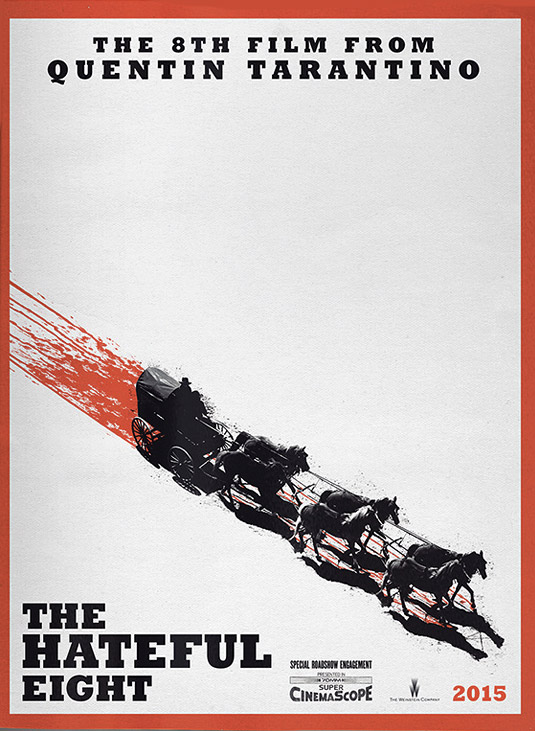
2. **The Hateful Eight (2015)***The Hateful Eight* unfurls as a western mystery film that initially offers an enthralling, claustrophobic experience, set against the stark backdrop of post-Civil War Wyoming. It showcases Tarantino’s mastery in both narrative construction and guiding performances, bringing an undeniable depth to both the conversations and the intricate character arcs that define the film. The movie benefits immensely from its gorgeous cinematography, which makes the snowy, limited setting feel epic, and a sublime score by the legendary Ennio Morricone, which even incorporated three previously unused tracks from *The Thing*, adding a layer of rich atmospheric texture.
The film’s strengths are particularly evident in its casting and the resulting performances. Samuel L. Jackson, Kurt Russell, and Jennifer Jason Leigh shine brightly under Tarantino’s meticulous direction, bringing a dynamic array of characters to life with dialogue that practically leaps off the screen. Jennifer Jason Leigh’s work, in particular, is often cited as the best acting ever displayed in a Tarantino film, a masterclass in subtlety and ferocity that anchors the entire ensemble. The single setting, a remote haberdashery, works exceptionally well, intensifying the suspense as the twist about the hidden gang members beneath the floorboards slowly unravels, amplifying the mystery.
Despite these significant merits, *The Hateful Eight* finds itself positioned at number nine on our list, primarily due to its diminished rewatch value. While the film initially captivates with its unexpected plot turns and intricate reveals, these elements tend to lose some of their luster once the surprises are known. This leaves the film feeling less evergreen, less timeless compared to the continuous appeal of other Tarantino classics like *Pulp Fiction*. After a few watches, it simply begins to feel less special, less essential in the grand tapestry of his creative output, even if its best elements still powerfully outweigh its less compelling aspects.
Read more about: Michael Madsen, Iconic Tough Guy of Tarantino Films, Dies at 67: A Legacy of Grit and Unexpected Depth
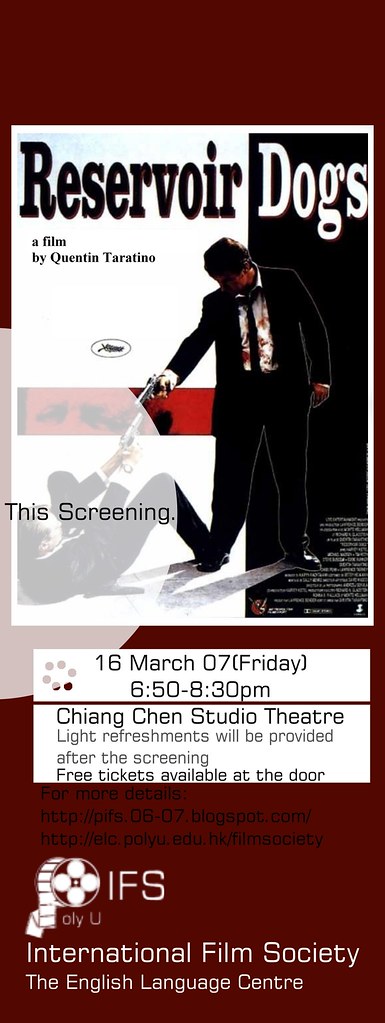
3. **Reservoir Dogs (1992)**Quentin Tarantino’s first big splash as a writer-director, *Reservoir Dogs*, grabbed the industry’s attention with its raw, unpolished charm and inventive plot structure, instantly establishing him as a formidable new voice in the cultural canon. Right out of the gate, Tarantino firmly established his signature style, a firm grasp over the crime genre, his fantastic taste in music, and an uncanny ability to extract precise, electrifying performances from his actors. It’s intricately constructed, much like the remainder of his acclaimed filmography, yet it possesses a certain breeziness that, paradoxically, makes it arguably his most intense film to date.
Despite its cult classic status and the presence of a truly stellar cast including Harvey Keitel, Tim Roth, and Steve Buscemi—all firing on all cylinders—*Reservoir Dogs* ranks lower on our list due to its comparative simplicity and a certain roughness around the edges. When pitted against Tarantino’s later, more polished, and expansive works, some of those jagged edges, while integral to its initial impact, may not personally resonate as much for a continuous rewatch experience. It’s a foundational film, undeniably brilliant, but it shows the nascent stages of a style that would later evolve into something grander and more refined.
However, its importance in Tarantino’s career is unquestionable and utterly undeniable. *Reservoir Dogs* pioneered his raw directorial style, showcasing his unique narrative approach and dialogue-driven intensity. It also holds a new charm at this point in his career, as it’s one of the few films (alongside *Death Proof* and either half of *Kill Bill*) that doesn’t play as an epic, offering a tighter, more contained, and profoundly impactful narrative. The collective brilliance of the cast, from Michael Madsen to Chris Penn, receiving the exact performances Tarantino wanted, cements its place as a crucial piece of cinema history.
Read more about: Michael Madsen, Beloved Actor Known for Tarantino Collaborations, Dies Aged 67
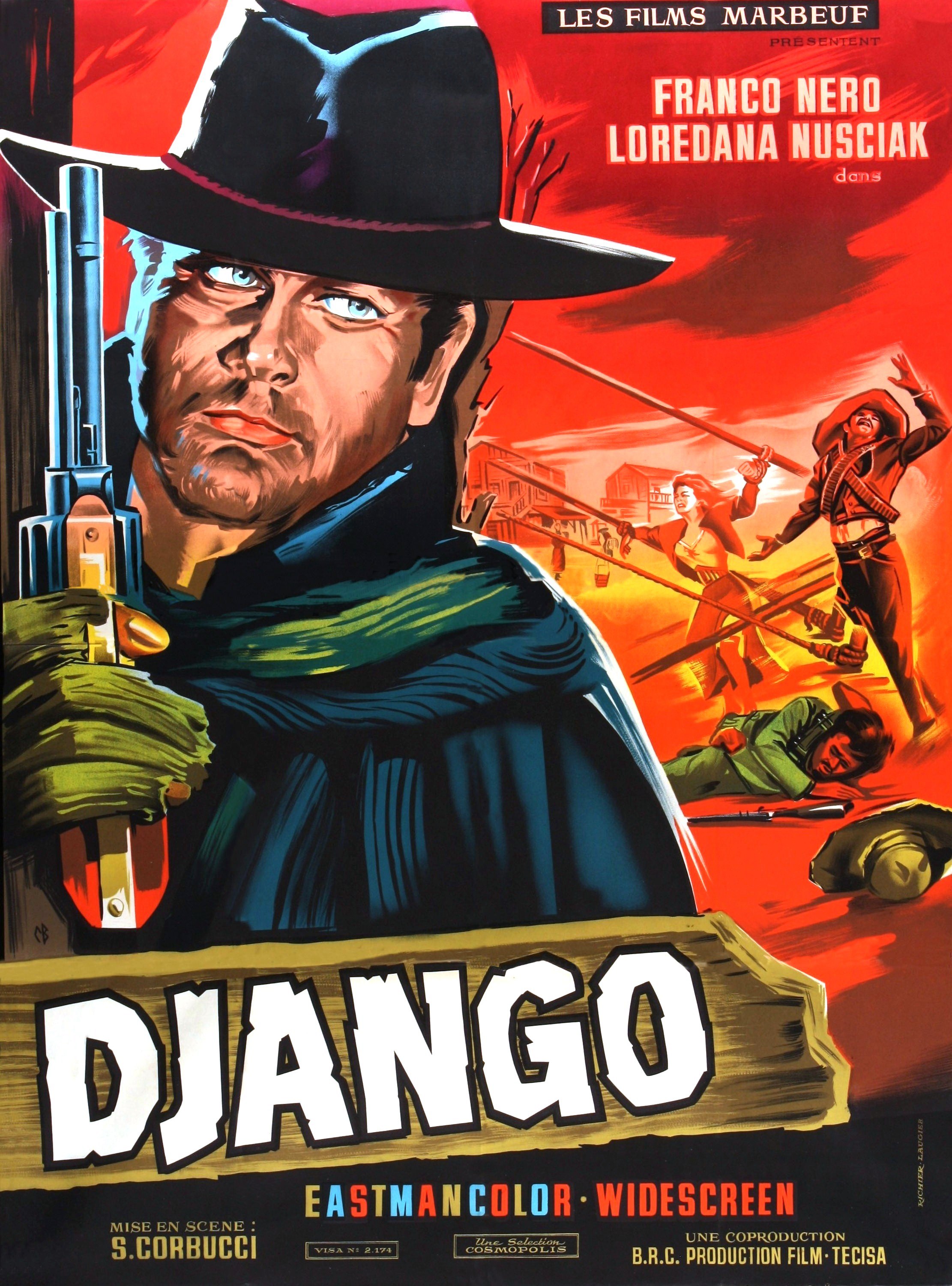
4. **Django Unchained (2012)***Django Unchained* stands as a masterclass in genre blending, seamlessly weaving together the gritty essence of the spaghetti western with the audacious spirit of blaxploitation films. Quentin Tarantino’s unique style is powerfully on display in its unflinching portrayal of the Antebellum South, tackling the sensitive topic of slavery with a boldness that represents a massive tightrope walk for any filmmaker. The key to its success, as observed, lay in emulating Italian Westerns, which allowed the film to feel somewhat removed from the real-world ugliness of U.S. history, creating a space for stylized revenge and compelling drama without entirely shying away from the inherent evil.
The movie is elevated by exceptional performances from Jamie Foxx, Christoph Waltz, and Leonardo DiCaprio, each providing an audacious perspective on slavery and contributing to a compelling narrative of revenge. DiCaprio’s portrayal of “Monsieur” Calvin J. Candie, particularly his hilarious inability to speak a lick of French, is probably one of the funniest things Tarantino has ever written, showcasing his knack for injecting humor into the darkest of contexts. The humor, often working brilliantly, adds layers to the dramatic intensity, ensuring the film remains engaging and challenging throughout its considerable runtime.
While *Django Unchained* generally delivers a captivating story and stellar cast performances, its occasional comedic relief might sometimes lessen the punch of its dramatic moments, creating an interesting tension. The film also houses some of Tarantino’s sweetest and saddest writings, from Django’s utter captivation by Dr. King Schultz’s German folktale to the heartbreaking death of D’Artagnan. Yet, even with its emotional peaks, Tarantino’s own cameo as an Australian bounty hunter feels entirely out of place, a rare misstep that momentarily breaks the immersion. Nonetheless, *Django Unchained* is a masterful, compelling, and immensely entertaining epic that underscores Tarantino’s growth as a master filmmaker, showcasing his sheer confidence and unique style that demands attention.
Read more about: You Won’t Believe How These 12 Supporting Characters Stole The ENTIRE Movie!

5. **Pulp Fiction (1994)**We have now reached *Pulp Fiction*, the seminal film that didn’t just break into the movie industry; it fundamentally shook it up and redefined independent cinema for a generation. Quentin Tarantino’s ingenious direction and razor-sharp script brought to life a film that stands out for its bold narrative style, its iconic non-linear structure, and an unforgettable ensemble of performances by legends like John Travolta, Uma Thurman, Samuel L. Jackson, and Bruce Willis—a list that truly could go on and on. It was a cinematic shot of adrenaline, cementing Tarantino as an audacious purveyor of killer kino with its compendium of crime tales injected with the patois of everyday conversation.
Despite its monumental impact, legendary status, and being an integral factor in making the ’90s the definitive decade for indie cinema, my personal perspective places it slightly lower in the Tarantino pantheon. This isn’t a dismissal of its genius, but rather a reflection of a personal belief that Tarantino’s more recent films truly show off his impeccable skills and the full maturity of his vision in a way *Pulp Fiction*, while groundbreaking, doesn’t quite match. It’s a testament to his consistent evolution that later works could, for some, even surpass such a colossal achievement.
However, its mark on cinema is both profound and far-reaching, making it impossible to ignore its cultural significance. *Pulp Fiction* is, quite simply, incredibly entertaining from start to finish. Its non-linear structure is not merely a gimmick; it actively encourages rewatching, an experience continuously bolstered by Tarantino’s energetic dialogue and the charming entourage of actors, all delivering some of their best work to date. Samuel L. Jackson, in particular, offers an explosive performance, solidifying his role as the ultimate collaborator in the director’s world. *Pulp Fiction* arrived at the exact right time, capturing the zeitgeist and forever altering the landscape of storytelling on the big screen, securing its place as an enduring classic. Its influence is undeniable, shaping not just how films are made, but how audiences engage with complex narratives.
Having journeyed through the lower echelons of our personal Tarantino ranking, we now ascend into the visionary director’s top five films—the true masterpieces that cement his legacy and demonstrate the full scope of his genius. These films aren’t just great; they represent milestones in his artistic evolution, pushing boundaries and solidifying his unique cinematic voice. From a sleek crime thriller to an alternate history war epic, get ready to dive into the best of Quentin Tarantino.
Read more about: From Pioneers to Powerhouses: 11 African American Actors Who Redefined Hollywood and Left an Unforgettable Mark

6. **Jackie Brown (1997)***Jackie Brown* stands as a truly significant artistic evolution for Quentin Tarantino, marking a distinct shift in his aesthetic. Drawn from the pages of Elmore Leonard’s novel, this film trades the edgy, raw energy of his earlier works for a more sleek, calm, and undeniably sophisticated vibe. It’s a testament to Tarantino’s maturing vision, seamlessly blending classic crime elements with a heartfelt homage to 1970s blaxploitation films, showcasing his ability to refine his energetic storytelling.
The film is elevated by a cast that is nothing short of exceptional, featuring Pam Grier, Robert Forster, Samuel L. Jackson, and Robert De Niro, all delivering nuanced and memorable performances. Here, Tarantino brings a polished, serene, and glossy texture to his vision, moving away from the stylishly forceful autonomy of his preceding films. The overall aesthetic feels more realized and meticulously put together, marking a clear “leveling up” as a director in the very best sense.
What makes *Jackie Brown* particularly compelling in Tarantino’s oeuvre is its unique position as the only time he has directly adapted pre-existing source material. One might expect this to make it stand out as an outlier within his catalog, yet it somehow feels distinctly and unmistakably Tarantino. The film’s brilliance, particularly in the astounding work done by Pam Grier and Robert Forster, underscores the director’s ability to imbue even adapted stories with his signature wit and character depth, making it a powerful entry at number five on our list.
Read more about: From Pioneers to Powerhouses: 11 African American Actors Who Redefined Hollywood and Left an Unforgettable Mark

7. **Kill Bill: Volume 1 (2003)***Kill Bill: Volume 1* explodes onto the screen as an electrifying cinematic experience, a relentless revenge saga that brilliantly melds together multiple genres. It’s a masterclass in homage, drawing deeply from martial arts drama, the stoic elegance of samurai films—brought to chaotic, stylized life by the iconic Crazy 88 crew—and the rugged, unforgiving flair of spaghetti westerns. Tarantino’s deft direction and Uma Thurman’s utterly intense performance as The Bride forge a film that captivates both the eyes and the heart.
Thurman leads an unforgettable cast that also includes Lucy Liu, Vivica A. Fox, and Chiaki Kuriyama, each contributing to a vibrant and visually spectacular cinematic tapestry. This volume grandly introduces one of the ultimate cinematic experiences, showcasing Tarantino’s unparalleled ability to craft a compelling and arresting narrative around a character for whom we root, bleed, and care for painfully. The seamless blending of diverse genres creates a unique and exhilarating viewing experience.
The film is incredibly entertaining from start to finish, demonstrating Tarantino’s sheer confidence in his ability to maintain momentum and spectacle. While there might be a slight lull between the Bride’s intense encounters with Vivica A. Fox’s Vernita Green (a fantastic opening scene) and Lucy Liu’s O-Ren Ishii, this is a minor quibble. O-Ren Ishii, of all the villains, was arguably the most compelling, and the Bride’s epic fight against her and her Crazy 88 is enthralling, masterfully shot, and perfectly fueled by a few choice needle drops that elevate the entire sequence.
Read more about: Michael Madsen, Iconic Tough Guy of Tarantino Films, Dies at 67: A Legacy of Grit and Unexpected Depth

8. **Kill Bill: Volume 2 (2004)**Following the action-packed intensity of its predecessor, *Kill Bill: Volume 2*, released in 2004, provides a perfect, deeply satisfying conclusion to The Bride’s tumultuous journey. This volume delves much deeper into the psyche of its characters, unraveling their intricate emotional journeys and meticulously exploring what truly drives them. Tarantino adeptly blends visceral action with a more profound, meaningful character study, offering a different, yet equally compelling, cinematic experience.
Uma Thurman once again leads an exceptional cast that truly shines, including legends like David Carradine, Daryl Hannah, and Michael Madsen, all offering performances ripe with intensity and subtlety. *Kill Bill: Volume 2* is a masterclass in storytelling, expertly blending chaos and calm in a narrative that is as emotionally resonant as it is visually spectacular. The finale absolutely nails the landing, providing a raw and riveting close to The Bride’s epic, two-part tale of vengeance and redemption.
While *Volume 1* was more about the immediate, adrenaline-fueled spectacle, *Volume 2* truly carries Tarantino’s classic crime action-drama threads, feeling more overtly “Tarantino-esque.” Everything involving the late Michael Madsen, for instance, doesn’t feel far removed from the tense, character-driven narratives of *Reservoir Dogs*. The film brilliantly culminates with David Carradine talking about superhero secret identities, a quintessential Tarantino moment that highlights his unique blend of highbrow and lowbrow cultural references, solidifying its place as a sophisticated, yet thoroughly engaging, continuation.
Read more about: Michael Madsen, Iconic Tough Guy of Tarantino Films, Dies at 67: A Legacy of Grit and Unexpected Depth
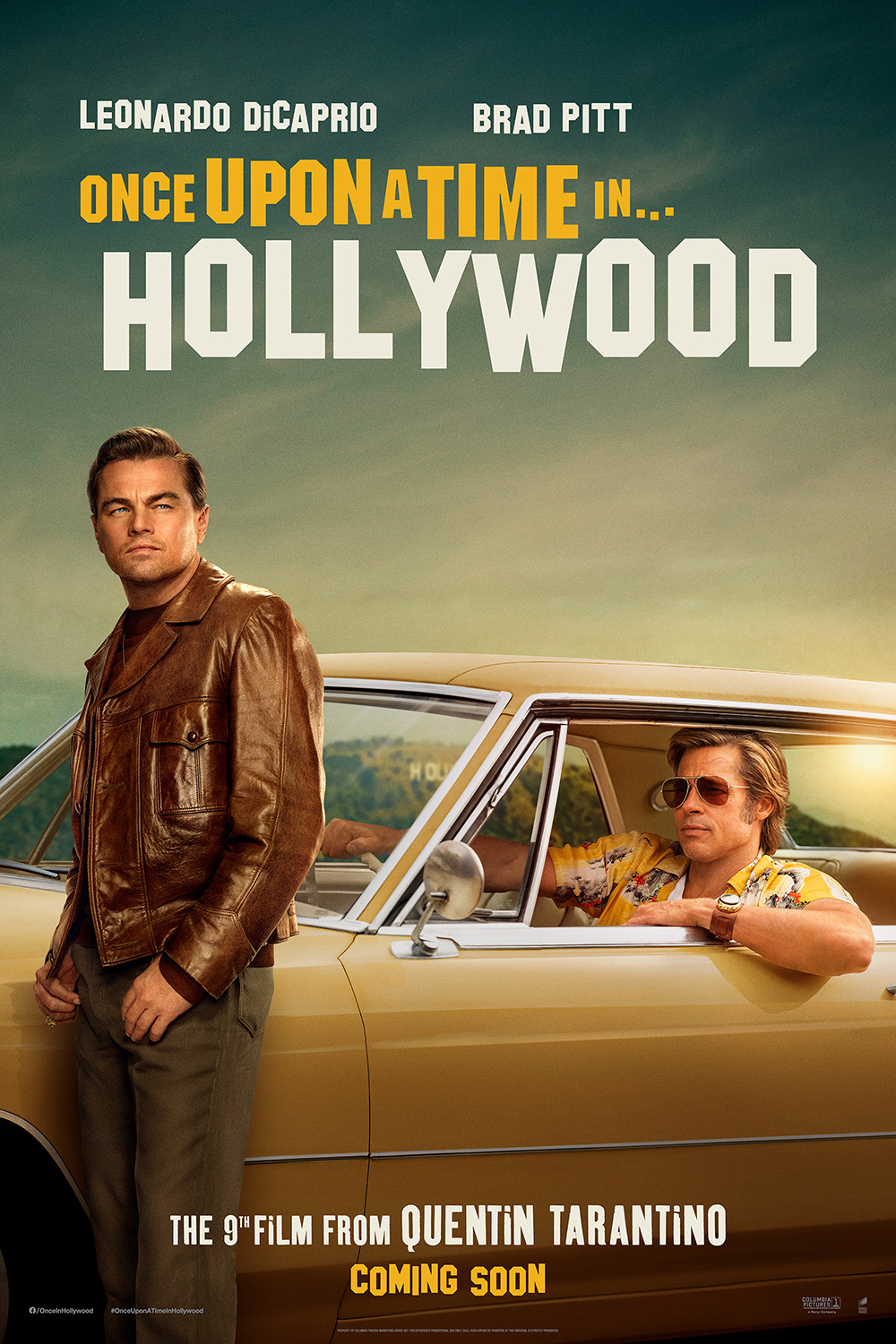
9. **Once Upon a Time… in Hollywood (2019)**Quentin Tarantino’s *Once Upon a Time… in Hollywood* is an enchanting, wistful homage to the bygone era of late 1960s Hollywood. It masterfully weaves together biting humor, raw emotion, and sharp social insights with the director’s signature storytelling flair, creating a narrative that is both deeply personal and universally resonant. This film is a vibrant tapestry, exploring themes of friendship, ambition, and the inexorable march of time in a changing industry.
The film touchingly mixes fiction and history through both real and made-up Hollywood icons, brought to life by the likes of Leonardo DiCaprio, Brad Pitt, and Margot Robbie. Pitt, in particular, won an Oscar for his performance, a testament to the film’s exceptional acting. Tarantino crafts a masterful homage to the United States in the 60s, blending wistful reminiscence with incisive cultural commentary, making for a truly immersive and thought-provoking experience that celebrates and questions its subject matter.
*Once Upon a Time… in Hollywood* instantly felt like an immortalized experience, a love letter to Hollywood that manages to breathe new life into familiar narratives. Here, Tarantino’s style seems to have finally reached its full maturity, presenting an enthralling mix of social commentary, sharp wit, unexpected savagery, genuine comedy, and profound compassion. This film is the ultimate companion piece to *Inglourious Basterds*, especially in the way it bravely plays with particularly horrid history, delivering an absolute blast of cinematic joy and reflection.
Adding another layer of intrigue, there’s news of an *Once Upon a Time… in Hollywood* sequel, which will reportedly be fronted by Brad Pitt’s character, Cliff Booth, instead of Leonardo DiCaprio’s Rick Dalton. Interestingly, Tarantino is only penning the script, with David Fincher set to direct. It’s important to note, however, that this project is not the heralded “10th and final” official Tarantino film, keeping us all on the edge of our seats wondering what his true cinematic swansong will be.

10. **Inglourious Basterds (2009)***Inglourious Basterds* isn’t merely a showpiece of film excellence; it’s an absolute edge-of-your-seat experience that completely reimagines what we expect from Hollywood storytelling. Tarantino’s bold reimagining of historical events, fused with his signature narrative flair, forges a movie that not only grips its audience but also offers profound, often unsettling, reflection. This film is a thrilling exploration of revenge and power, set against the backdrop of Nazi-occupied France.
The film boasts an all-star cast, with Brad Pitt, Christoph Waltz, Mélanie Laurent, and Michael Fassbender bringing their absolute A-game to the screen with performances that are both captivating and leave a lasting impression. *Inglourious Basterds* absolutely captivates you, expertly mixing genuine laughs with seriously tense moments and keeping you perpetually on edge, all without missing a single beat. It’s a masterclass in suspense, humor, and dramatic payoff, making every minute a truly engaging experience.
Simply put, this may just be the most entertaining movie ever made. You become so utterly pulled into the lives of the characters and their precarious situations that you barely realize how deep and thoughtful the commentary truly is, even when Tarantino literally executes Hitler with his fictional characters. *Inglourious Basterds* is simply unstoppable; its audacious blend of fantasy and history creates a reality so compelling, you wish it were true, providing a cathartic and unforgettable experience.
This film truly represents the pinnacle of Tarantino’s “glossier later days” phase, starting with *Inglourious Basterds* and continuing today. There’s a strong argument that this is *the* definitive Tarantino film, as he masterfully plays with establishing different storylines and merging them with unparalleled skill. This film also established something new for his career: Tarantino’s sheer joy in messing with the history we know as our reality, creating a world so vividly real, you wish you could live in it.
Lastly, and perhaps most importantly, Christoph Waltz’s performance as SS-Standartenführer Hans Landa is not just a highlight; it is unequivocally the best acting to ever grace a Tarantino film. His portrayal of the “Jew Hunter” is a chilling, charismatic, and utterly mesmerizing display of villainy and intelligence, perfectly capturing the nuanced evil that underpins the film’s narrative. It’s a performance that stands tall even in a filmography packed with stellar turns, an enduring testament to his brilliance.
Read more about: You Won’t Believe How These 12 Supporting Characters Stole The ENTIRE Movie!
From the raw energy of *Reservoir Dogs* to the sophisticated historical revisionism of *Inglourious Basterds*, Quentin Tarantino has carved an indelible mark on cinema. His filmography, though subject to endless debate and personal ranking, remains a testament to a visionary director who consistently pushes boundaries, challenges expectations, and entertains on a grand scale. As we eagerly await his promised final film, the anticipation only builds, wondering what new narrative tapestry, what fresh blend of genre and wit, he will weave as his ultimate cinematic statement. His unique voice, vibrant characters, and unforgettable storytelling will undoubtedly continue to inspire and provoke for generations to come, leaving us all wanting just one more dose of that inimitable Tarantino magic. What a ride it’s been, and what a future still awaits, even beyond the silver screen, as he explores new creative ventures.


